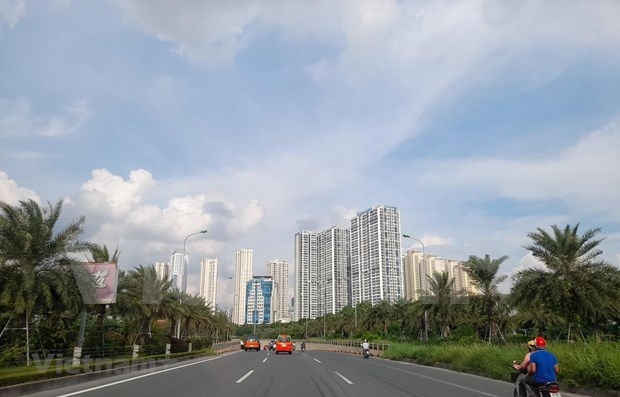Vietnam: Real estate on course for foreign funding elevation
This year could see abundant cash flow in real estate, particularly from foreign funders, professional investment funds, and individual investors.
Kenneth Gaw, president and co-founder of Gaw Capital Partners based in Hong Kong, stressed that Vietnam’s upcoming property activity, especially the industrial property evolution, will be the foundation for attracting additional overseas investment.
“Given Vietnam’s impressive economic growth, the booming of modern means of retail such as e-commerce, and waves of foreign investment in manufacturing facilities in Vietnam, demand for high-quality industrial property is expected to reach new heights,” Gaw said.
“It is no coincidence that all of the factories displayed in neighbouring countries are being relocated to the S-shaped country. Vietnam is currently experiencing a golden population structure and benefits from a strategic geographical location in the heart of East Asia. It is also a signatory of several frameworks for international economic integration, including free trade agreements with both regional and non-regional partners,” Gaw added.
Vietnam has excelled in reeling in the big fish in electronics, footwear, and clothing in recent decades. Productive labour costs, reliable infrastructure, and a smooth bureaucratic process have drawn the attention of Samsung, Foxconn, Nike, Adidas, Gap, Levis, Luxshare, and Pegatron.
Along with this opportunity comes a significant amount of difficulty because of Vietnam’s highly complex licensing regulations.
According to Nguyen Quoc Anh, deputy general director of Batdongsan.com.vn, the real estate field could be the favourite destination for investors this year. Quoc Anh added that northern provinces are outperforming in investment flow recently because it has seen more improvements in infrastructure that offers better conditions to attract investors.
“Looking at the near future, the cash flow trend continues to pour into the northern provinces, but in the long-term, the southern region is still an area of great attraction. A stable developed economy and favourable incentives are attracting investment capital,” Anh said.
Sharing the same view, David Jackson, general director of Colliers International (Vietnam), said that many driving forces are being reported for the market in the coming time, including a series of supportive policies on real estate legal framework, the increasing demand for housing, and the substantial investment in promoting public investment.
“The year will likely see a large amount of money poured into real estate in all segments. This finance comes from foreign investors, professional funds, and individual investors,” said Jackson.
The fourth quarter of 2021 saw the real estate market warm up again with an increase in the number of newly-licensed projects.
According to figures from the Ministry of Construction, the apartment segment saw 49 new licensed projects, with an expected supply of over 15,000 apartments to the market. This is an increase of about 125 per cent compared to the third quarter of 2021.
Among those, 24 projects with over 3,600 licensed apartments were reported in the north, six projects with more than 1,800 apartments in the centre, and 19 projects and 9,700 apartments in the south.
The social housing segment also has three new licensed projects in Binh Duong, Hanoi, and Lang Son, with a total supply of over 3,300 apartments.
The tourism real estate segment also received good news with six new resort projects, promising to supply the market with 3,500 tourist apartments and 168 tourist villas to the market in the coming time. The projects are located in Hoa Binh, Binh Dinh, Ninh Thuan, and Ha Tinh provinces.
According to forecasts from experts and international financial institutions, foreign direct investment (FDI) inflows into Vietnam in the coming time will be even more significant because overseas enterprises believe in Vietnam in its efforts to fight the pandemic.
Besides, with major trade agreements signed, Vietnam has the fundamental advantage of being a large market with a young, dynamic demographic, and increasing quality of human resources, which can be competitive with other countries in the region.
Real estate continued to be at the second position among 17 industries receiving FDI inflows in February 2022. In the month, real estate attracted considerable investment of nearly $1.52 billion, accounting for 30.4 per cent of total registered capital. This result helped real estate become second only to processing-manufacturing in attracting FDI.
The figure was fuelled by the capital adjustment segment, adding almost $975 million and accounting for 64 per cent of the total registered investment capital in real estate.
Specifically, nearly $941 million from a Singaporean investor in VSIP Bac Ninh was the main driving force and also led to the province taking the country’s lead in terms of foreign investment in the first two months of 2022.
Source: VIR


 English
English




